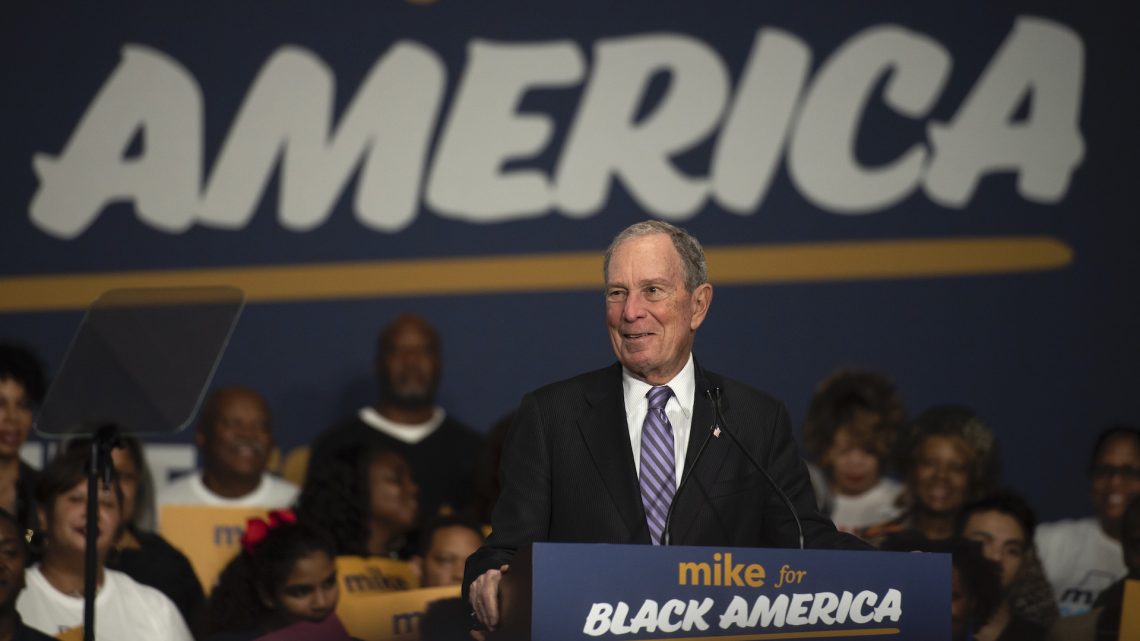
Mike Bloomberg in 2011: ‘Enormous Cohort’ of Young Black and Latino Men ‘Don’t Know How to Behave in the Workplace’
February 17, 2020While promoting a multi-million dollar initiative to “reduce disparities” as the mayor of New York City in 2011, Democratic presidential candidate Michael Bloomberg said “enormous cohorts” of young black and Latino men “don't know how to behave in the workplace where they have to work collaboratively and collectively.”
Bloomberg made the remarks during an interview with PBS Newshour, as he promoted his Young Men’s Initiative, a $127 million, three-year program funded in part by Bloomberg’s charitable organization, financier George Soros’ Open Society Foundations, and the city of New York. “Blacks and Latinos score terribly in school testing compared to whites and Asians. If you look at our jails, it’s predominantly minorities,” Bloomberg said.
“If you look at where crime takes place, it’s in minority neighborhoods. If you look at who the victims and the perpetrators are, it’s virtually all minorities,” Bloomberg continued. “This is something that has gone on for a long time, I assume it’s prevalent elsewhere but it’s certainly true in New York City.”
Bloomberg touted his administration’s work to reduce the crime rate, which he credited in this interview to diversifying the police force, saying that it was “particularly important to black and Latino kids and their families and neighborhoods, because that’s where the crime is.”
READ: Trump called Bloomberg racist for stop-and-frisk. But he supported it for years.
Bloomberg also said his administration had worked to “attract industries that can use the people here who are unemployed” and increase job opportunities for marginalized people overall.
“But nevertheless, there's this enormous cohort of black and Latino males, age, let’s say, 16 to 25,” Bloomberg continued, “that don't have jobs, don't have any prospects, don't know how to find jobs, don't know what their skillsets are, don't know how to behave in the workplace where they have to work collaboratively and collectively.”
The Bloomberg campaign did not immediately respond to a request for comment.
Bloomberg’s comments on crime and where it’s most prevalent echo his rhetoric during his time as mayor and the immediate aftermath, which has come under more scrutiny in recent weeks as he’s risen in Democratic presidential primary polls amid a tidal wave of spending in Super Tuesday states and beyond.
Last week, Bloomberg apologized for remarks he made in 2015 defending the city’s “stop and frisk” policy under his administration, in which he said that more cops were placed in black and Latino neighborhoods “because that’s where all the crime is” and that “the way you get the guns out of the kids' hands is to throw them up against the wall and frisk them."
"I defended it, looking back, for too long because I didn't understand then the unintended pain it was causing to young black and brown families and their kids,” Boomberg said last week during a campaign stop in Houston.”I should have acted sooner and faster to stop it. I didn't, and for that I apologize."
Bloomberg spent $30 million as part of the Young Men’s Initiative, which purported to provide “educational, employment, and mentoring opportunities across more than a dozen city agencies.”
READ: Mike Bloomberg gave the DNC $300k two days before he entered the 2020 race
Later in the PBS interview, Bloomberg — who was originally elected as a Republican but later switched his party affiliation to independent, before becoming a Democrat after his mayoralty ended — blasted Washington leadership at the time for, among other things, a deal to increase the debt ceiling and for “piling regulations” on Americans.
Bloomberg also suggested at the time that balancing the budget should be a priority, which is bound to put him at odds with other Democrats in the race, most notably current frontrunner and Vermont Sen. Bernie Sanders, who propose expanding the social safety net.
“The fact that they came up with a deal, whatever that means, for increasing the debt ceiling, everybody sees: They didn’t do anything to balance the budget,” Bloomberg said. “They didn’t do anything to any of our long term problems. They kicked the can down the road with probably fictitious savings way down the road and no new revenues. That’s not the way to help this country get its act together.”
Cover: Democratic presidential candidate Mike Bloomberg speaks to the crowd on February 13, 2020 in Houston, Texas. The former New York City mayor launched "Mike for Black America," an effort to focus on key issues relating to black Americans on his fifth campaign trip to Texas. (Photo by Callaghan O'Hare/Getty Images)


